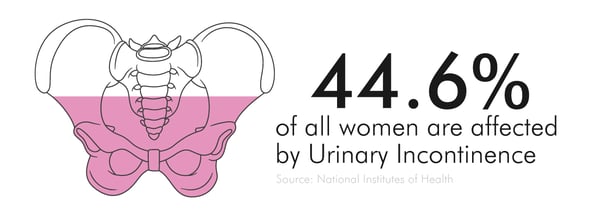Women's Pelvic Health
If you experience urinary leakage, pelvic pain or dysfunction, you are not alone. 25% of all women are affected by pelvic floor disorders resulting from pregnancy, childbirth, surgery, chronic constipation, and aging. Pelvic Health physical therapy may help. Kim Fletcher, DPT, Karla Gowan, DPT, and Holli Parrish, DPT, are specially trained in Women’s Health Physical Therapy and are dedicated to working with women on treating musculoskeletal and pelvic dysfunction in a private, one-on-one setting

Pelvic therapy treatment can help the following:
- Stress incontinence (urine leakage with coughing, sneezing, jumping, lifting, etc.)
- Urge incontinence (strong sudden urges)
- Pelvic organ prolapse
- Dyspareunia (Pain with intercourse)
- Pelvic pain
- Vaginismus (painful spasms with penetration)
- Vulvodynia (chronic pain around vulva)
- Post-partum pain
- Levator Ani Syndrome
- Diastasis Recti
- Pregnancy-related pain
- Pudendal Neuralgia (pelvic nerve pain)
- Post-surgical scar pain
- Coccyx/tailbone pain
- Constipation
- Fecal incontinence
Physical therapy treatments include:
- External and internal examination techniques
- Pelvic floor muscle training
- Internal and external trigger point release
- Surface EMG
- Manual therapy for the pelvic floor and hip musculature
- Joint Mobilization
- Patient-specific exercises targeting the pelvic floor musculature
- Instruction in Vaginal Dilator use
Frequently Asked Questions
Women's Pelvic Health Providers

Kim Fletcher, PT, DPT, PRPC
Physical Therapist | Certified Pelvic Rehabilitation Practitioner
A Moscow native, Kim returned to the Palouse following graduation from Eastern Washington University with a Doctorate in Physical Therapy. After working many years as an outpatient orthopedic physical therapist she sought further education to allow her to better serve patients with pelvic dysfunction, pregnancy and postpartum conditions. She has gone on to earn her Pelvic Rehabilitation Practitioner Certification (PRPC) after several years of focused work in the area of Pelvic Rehabilitation.
Special interests in the area of pelvic health include pregnancy and postpartum conditions, coccyx dysfunction, incontinence, bowel dysfunction, and pelvic pain. Outside of work she enjoys spending time with her 2 children, playing hockey and golfing with her husband.
